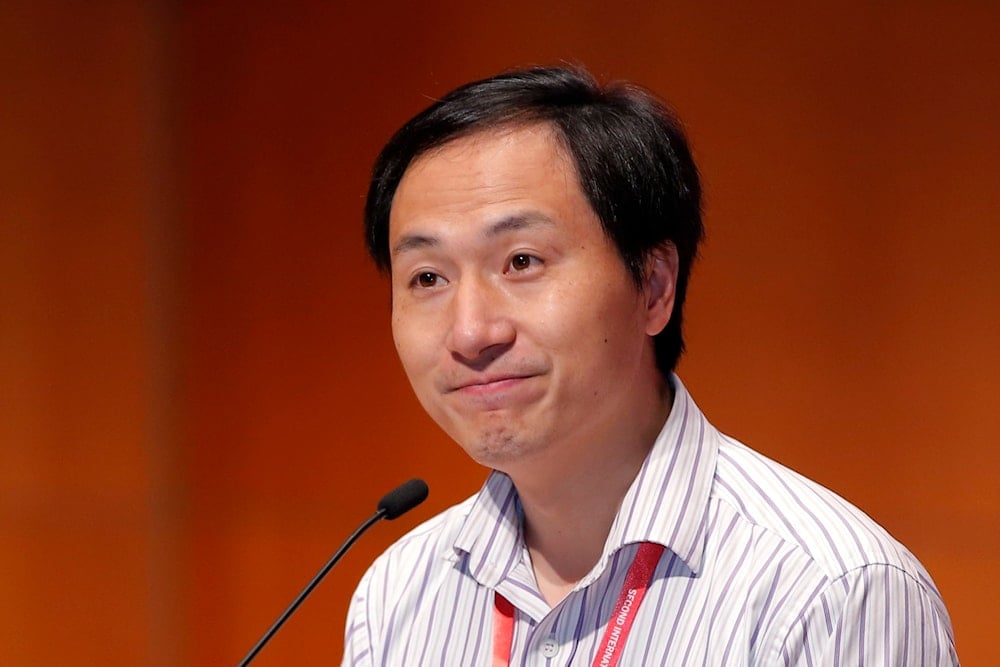Scientist who gene-edited babies returns to lab after jail time
China's gene-editing scientist is now focusing on genetic diseases and believes that human embryo gene editing will eventually gain acceptance.
-

He Jiankui, a Chinese researcher, speaks during the Human Genome Editing Conference in Hong Kong, on Wednesday, November 28, 2018. (AP)
A Chinese scientist, previously jailed for his involvement in developing the world’s first genetically edited babies, announced his return to the laboratory to focus on treating Alzheimer's and other genetic disorders.
In an interview with a Japanese newspaper, He Jiankui disclosed that he has resumed his research on human embryo genome editing, disregarding the ethical controversy surrounding the artificial rewriting of genes. Critics had warned that such practices could fuel the demand for "designer babies."
“We will use discarded human embryos and comply with both domestic and international rules,” He told the Mainichi Shimbun, adding that he had no plans to produce more genome-edited babies. Previously, he had used a tool known as CRISPR-Cas9 to rewrite DNA in embryos.
In 2019, a Chinese court sentenced He to three years in prison for breaching medical regulations. He had claimed in the previous year that he had created genetically modified twin sisters, named Lulu and Nana, before their birth.
Falsifying ethics review panel documents
His experiments sparked controversy throughout the medical and scientific world and he was condemned for proceeding with the risky, ethically contentious, and medically unjustified procedure with inadequate consent from the families involved.
Furthermore, the court determined that he had falsified documents from an ethics review panel, which were utilized to enlist couples for his research. He argued he had used a gene-editing procedure known as CRISPR-Cas9 to rewrite the DNA in the sisters’ embryos – modifications he claimed would make the children immune to HIV.
Despite facing widespread criticism, He has defended his work, asserting his pride in the creation of Lulu and Nana. Additionally, another girl was born in 2019 as a result of similar experiments.
The scientist informed Mainichi that he aimed to utilize genome editing in human embryos for the development of treatments targeting rare genetic disorders like Duchenne muscular dystrophy and familial Alzheimer's disease. That said, he has established three laboratories since his release from prison in 2022 to pursue this objective.
According to the newspaper, he asserted that the three genome-edited children are "perfectly healthy" and are experiencing normal growth without any issues. He mentioned that the twins, now five years old, are currently attending kindergarten.

 3 Min Read
3 Min Read








